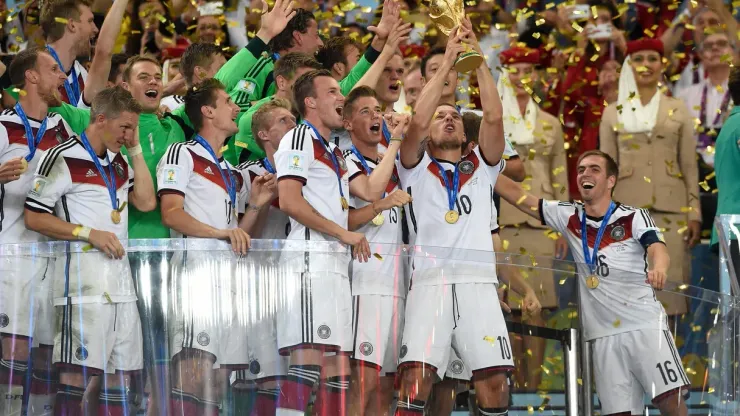FIFA’s pending announcement to officially announce that the 2022 FIFA World Cup will be moved to November-December has already caused shockwaves throughout the sport. Most importantly perhaps is its impact on the European club calendar and the knock-on impact the move of the World Cup will have on three different club seasons.
While casual fans might believe the supremacy of the World Cup and international competitions logical, it is in fact illogical. The World Cup is an event that takes place once every four years, and the true lifeblood of this sport is the club game particularly in Europe. As time has progressed, the European club game has become even more central to every decision made by those who run the sport.
During the course of the last 20 years, a gradual shift in supremacy has occurred in soccer. At the time of the 1998 World Cup in France, the supremacy of international soccer was well-established. But the lucrative nature of the UEFA Champions League in addition to the worldwide marketing prowess of top European clubs and the Barclays Premier League has shifted the focus to where international soccer and the club game are more or less at a parity worldwide in terms of interest and recognition. By 2022, I firmly believe the club game, especially the biggest clubs such as Bayern Munich, Manchester United, Barcelona and Real Madrid will represent a more important element in soccer’s global footprint than a World Cup.
With this in mind, the impending move of the FIFA World Cup in 2022 and the unwillingness of the sport’s governing body to compensate European clubs could very well be revisited in a few years. FIFA might believe they have primacy at this moment and that the world stops for a World Cup, but the reality is that should a gutsy international event ever conflict with the heart of a European club seasons, all bets are off.
Consider that three club seasons will be impacted – the 2021-22 season will likely have to be ended early to give players a full summer rest and preseason run up to the start of the 2022-23 season. The European season will experience a break during the World Cup. Then each nation’s top league will end its season late or have to dispense with a winter break. This will then impact the summer run up to the 2023-24 season on the European continent, which then runs into the Euro 2024 tournament.
Simply put, with this scheduling nightmare in place, the growing popularity and power of the club game, and FIFA’s dishonesty and duplicity in the handling of Qatar 2022, I firmly believe the clubs will have the last word on how the World Cup is conducted in Qatar.
By the time 2022 rolls around, the biggest brands in soccer are far more likely to be Manchester United, Real Madrid and Bayern Munich than the Brazilian or Argentine national teams. The heroes of so many of the nations outside of Europe will be linked to the biggest clubs on the continent and the will to disrupt a club season even for a World Cup may not exist outside of remote parts of the world and the Middle East itself.
FIFA has put itself in a box with the Qatar situation. While publicly they may be creating some perception of closure on the issue, they’ve opened up a whole other can of worms that is unlikely to be bottled back up anytime soon. So do not be surprised if the decision to move Qatar 2022 back to the summer months is made sometime in the future.
200+ Channels With Sports & News
- Starting price: $33/mo. for fubo Latino Package
- Watch Premier League, Women’s World Cup, Euro 2024 & Gold Cup
The New Home of MLS
- Price: $14.99/mo. for MLS Season Pass
- Watch every MLS game including playoffs & Leagues Cup
Many Sports & ESPN Originals
- Price: $10.99/mo. (or get ESPN+, Hulu & Disney+ for $14.99/mo.)
- Features Bundesliga, LaLiga, Championship, & FA Cup
2,000+ soccer games per year
- Price: $5.99/mo
- Features Champions League, Serie A, Europa League & Brasileirāo
175 Premier League Games & PL TV
- Starting price: $5.99/mo. for Peacock Premium
- Watch 175 exclusive EPL games per season






